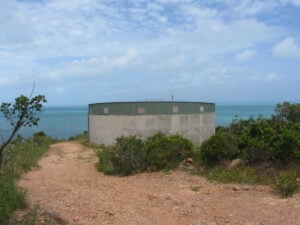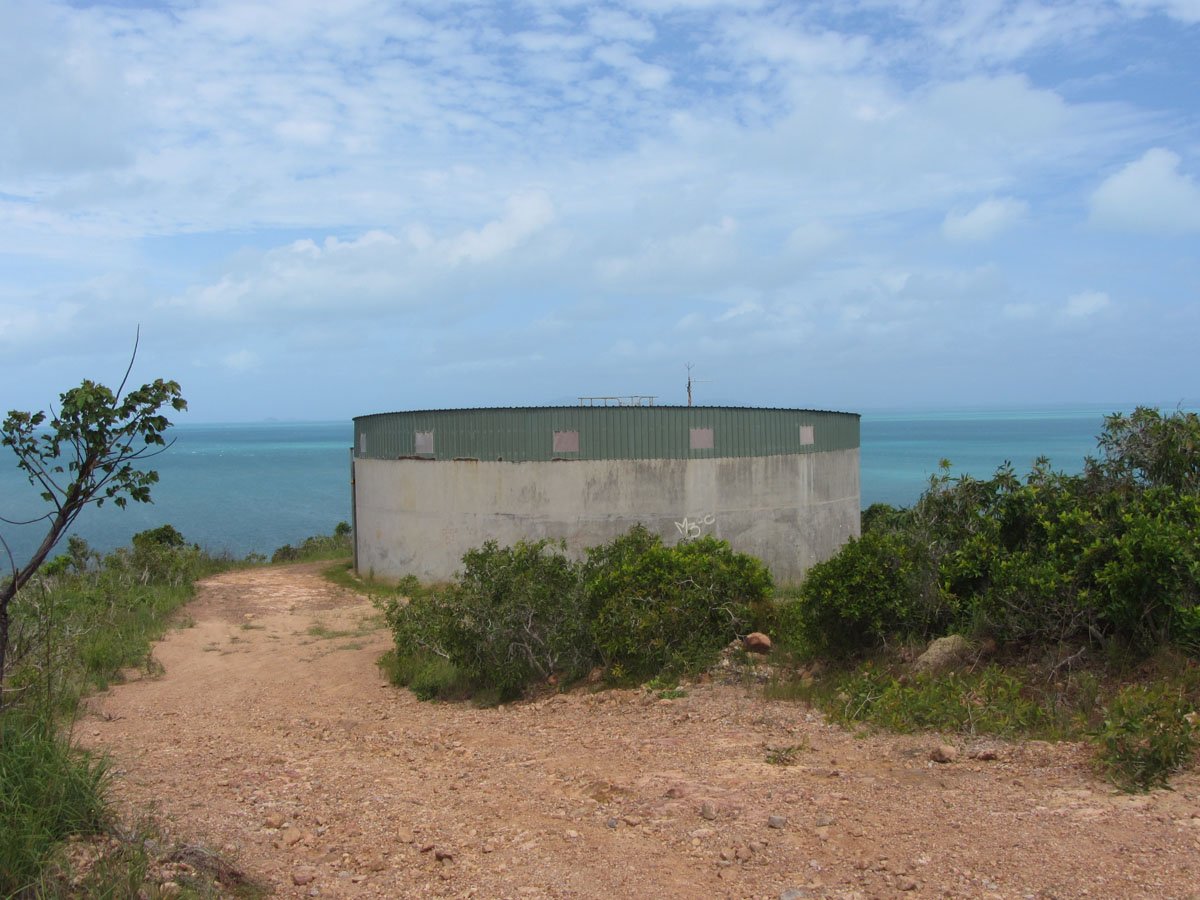Water Management
Learn more about our water and wastewater services
Service Overview
Our Engineering Services team and Divisional Engineering Officers (DEOs) are focussed on providing our communities with effective water management to ensure an adequate, safe and reliable water supply.
- Water schemes
-
15
- Wastewater schemes
-
12
- Sources of water. Water is collected from rainwater, weirs, wells, bores and the ocean.
-
5
Water, a Critical Resource
Water is essential to the livelihood of the communities throughout the Torres Strait. Our Water and Wastewater team is dedicated to providing our communities with a safe and consistent water supply. They ensure wastewater effluent is at a quality that satisfies licensing approval conditions.
Key Initiatives
Water conservation
We work with communities to promote waterwise habits, reducing water consumption and wastage through mindful household use and reporting leaks. By encouraging sustainable water use and raising awareness of the natural water cycle, communities can conserve more. Regular water meter recordings, displaying water restriction notices, and providing advice during water restriction periods help support conservation efforts.
Think before you flush
There are simple precautions to avoid creating a blockage in your wastewater pipework. Blockages can cause wastewater to back up and overflow, causing serious damage and contamination to your home.
- Don't wash leftover fat, oil, and greasy sauces down your sink. It can solidify in your pipes, creating a blockage that stops wastewater draining away, which means it could come back up through your plug hole.
- Don't flush food scraps, clothing, paper, wipes, hygiene products, rags, cans, bottles or any other hard objects down the toilet. Toilets are only designed to remove human waste and toilet paper. Other items can block your pipes and result in a flooded bathroom. Use the bin, instead of the toilet, to dispose of items that don’t break down easily like toilet paper.
Frequently Asked Questions
Yes, all properties receiving water and wastewater services from a reticulated Council supplied water or wastewater scheme are charged levies annually.
No, however there are provisions in the Water Supply (Safety and Reliability) Act 2008 where a service provider may reduce the water supply to a premises to the minimum level necessary for the health and sanitation purposes of the owner or occupier.
Concealed leaks occur when water pipes crack under the ground, in walls or underneath concrete and driveways. A tap that continues to drip or a toilet that has water continuously running into the bowl are also examples of leaks. Please inform the Engineering Services Team of any suspected leaks.
Homeowners are responsible for installing and maintaining any plumbing on their property (i.e., pipes and fittings on the property side of the water meter connection point). The Water and Wastewater team is responsible for fixing any leaks in the water distribution network, up to and including the water meter.
Water meters measure the volume of water used by residential and commercial buildings and are typically installed near the property boundary either above ground or in a pit.
Contact Us
All water and wastewater enquiries, please contact us:
Phone: 0436 923 990
Email: engineeringmanagement@tsirc.qld.gov.au
Postal Address: PO Box 7336 Cairns QLD 4870



